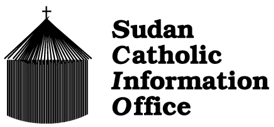Human Rights Watch publishes book
Human Rights Watch has published a new book on the devastating famine that ravaged Sudan last year.
The book, Famine in Sudan, 1998: The Human Rights Causes, gives a detailed account of the causes, progression and consequences of the disaster that prompted the hitherto unprecedented UN relief operation.
It also gives recommendations to the chief protagonists in the Sudanese civil strife and the international community on what can/should be done to avert a repeat of the calamity of Biblical proportion.
Human Rights Watch began in 1978 with the founding of its Europe and Central Asia division (then known as Helsinki Watch). Today, it also includes division covering Africa, the Americas, Asia and the Middle East. Its headquarters is in New York, USA.
In addition, it includes three thematic divisions on arms, children's rights and women's rights.
Human Rights Watch conducts regular, systematic investigations of human rights abuses in some 70 countries around the world.
The book on Sudan was researched and written by the organisation's counsel and Sudan researcher Jemera Rone. Ms Rone conducted research in rebel-held areas of the Nuba Mountains and Southern Sudan, and in Kenya and Uganda in October 1997 and April-May 1998.
Famines in Africa's most expansive state last year put about 2.6 million out of 27 million people at risk of starvation.
"Nobody knows how many people have died in Sudan's most recent famine or how many remain at risk - one reason the famine in 1998 was not recognised sooner as the catastrophe it was", Rone says in the in the introductory pages of the book.
"But the United Nations estimated that as of July 1998 there were 2.6 million people at risk of starvation in Sudan, out of a total population of about 27 million".
She asserts: "This famine was caused and is being perpetuated by human rights abuses by all parties to the civil war, now in its 15th year".
The 1998 famine had one natural cause: A two-year drought brought about by the El Nino phenomenon. This led to massive crop failure in many parts of the war-ravaged country.
However, says the book, the situation was compounded by "human rights abuses by all parties to the conflict.
"Government militias and army forces conducted scorched earth campaigns against civilians, including displacing or capturing them for slavery in the Bahr el Ghazal region, and blockading all relief and resettling them in peace camps in the Nuba Mountains. The main rebel army and government authorities both diverted food".
"The rural Dinka communities were also assailed by raiding and looting by the government-backed forces of former rebel commander Kerubino Kuanyin Bol, himself a Bahr el Ghazal Dinka, from 1994 until late 1997, further reducing the population's capacity to survive".
Charles Omondi
----------------------------------------------------------------------
SUDAN CATHOLIC INFORMATION OFFICE
Bethany House, P. O. Box 21202, Nairobi, Kenya
tel. +254.2.577595 or 577949, fax 577327
e-mail: [email protected]
----------------------------------------------------------------------
For further information, please contact:
Fr. Kizito, SCIO, tel +254.2.577595 - fax +254.2.577327 - e-mail: 
